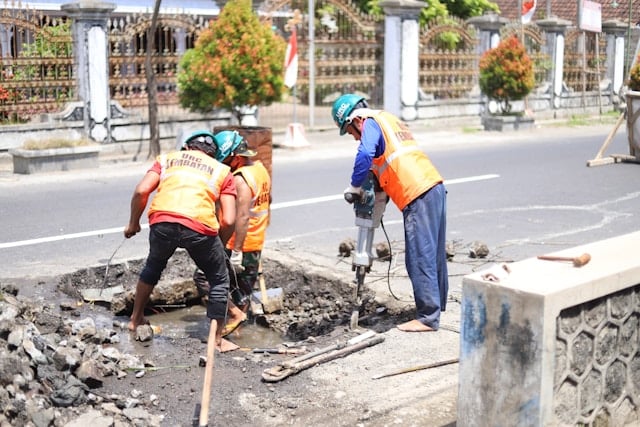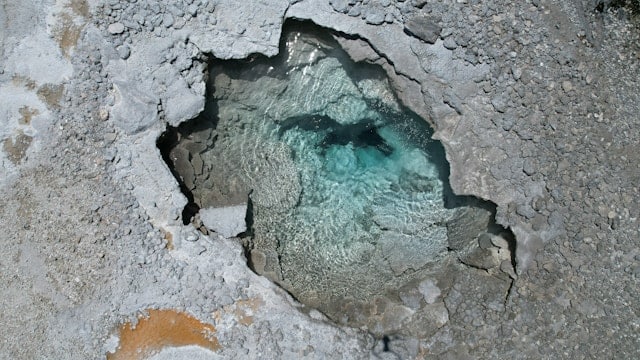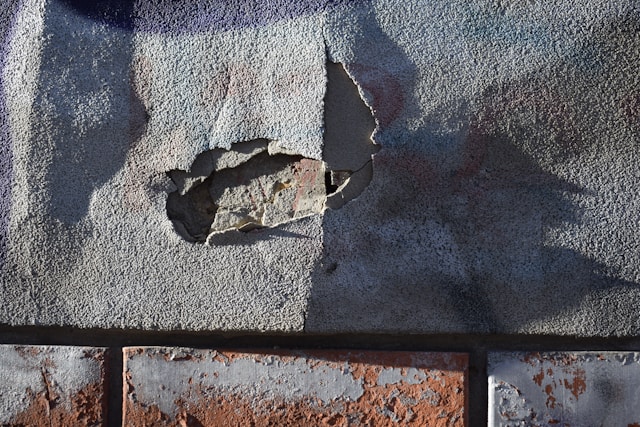If you need top-rated sinkhole repair guidance in Florida, start with the basics: know the warning signs, the proven methods, and how pros evaluate risk. The goal is long-term stability, not a quick patch.
With Helicon, you get licensed experts who understand local soils and building codes. We keep the process transparent, explain options in plain language, and focus on restoring safety. From inspection to repair, every step is tailored to your property.
In this guide, you will learn how sinkholes form, how contractors assess damage, and which methods work best in Florida. We will cover costs, insurance tips, and preventive maintenance. Use it to make confident decisions and protect your home.
Understanding Sinkholes in Florida
Sinkholes happen when the ground beneath your home weakens and collapses. They form in different ways and show specific signs, depending on local conditions. Knowing what causes sinkholes and how to spot them early can help you protect your property and act quickly.
Types of Sinkholes Common in Florida
Florida has three main types of sinkholes:
- Solution Sinkholes: These form slowly when water dissolves underground limestone. They often start small and get larger over time.
- Cover-Subsidence Sinkholes: These occur where sand covers the limestone. As the limestone dissolves, sand moves downward, causing the ground to settle gradually.
- Cover-Collapse Sinkholes: The most dangerous type. Soil above a limestone cavern suddenly collapses, creating a rapid and large hole.
These can cause serious damage to homes. Understanding which type affects your area helps you know how serious the risk is and how to respond properly.
Warning Signs of Sinkhole Activity
Watch for these common sinkhole warning signs around your home:
- Cracks in walls, floors, or ceilings, especially near doors and windows.
- Doors and windows that suddenly jam or don’t close properly.
- Sinking or uneven ground near foundations, driveways, or sidewalks.
- Small holes or depressions forming in your yard.
- Water accumulating unexpectedly in low spots.
If you notice any of these, it’s important to get a professional inspection immediately to assess the risk and prevent further damage.
Causes and Risk Factors
Sinkholes in Florida mostly happen because of the state’s limestone bedrock, which dissolves easily when it meets water. Heavy rains, droughts, changes in groundwater levels, and human activities like drilling or construction can increase the risk.
Some regions, especially west-central Florida, are higher risk due to their specific geology. Poor drainage around your home or broken water pipes can also trigger sinkholes.
Being aware of these causes helps you spot problems early and take action before damage occurs.
Top-Rated Sinkhole Repair Services Overview
Choosing the right sinkhole repair service means knowing what qualities and qualifications to look for. You want a company with proven skills, proper licensing, and a solid reputation for safety and quality.
Understanding these details helps you protect your home and investment.
Criteria for Choosing Trusted Contractors
When selecting a sinkhole repair contractor, focus on experience and local knowledge. Florida’s soil and geology are unique, so a contractor familiar with local conditions will offer better solutions.
Look for companies that provide free inspections and detailed repair plans. Clear communication and transparency about costs and methods are key.
Also, check for warranties or guarantees on work to avoid future issues. Customer reviews and past project examples show how reliable a contractor is.
Make sure the company uses modern repair techniques like chemical grout injection or compaction methods tailored for Florida.
Certifications and Industry Standards
Certified contractors have met industry standards and shown commitment to quality work. Certifications tell you they follow safe, effective repair methods.
Look for memberships in groups like the Foundation Repair Association or state contractor boards. These show the company stays updated on best practices and regulations.
Adherence to safety and environmental guidelines is also crucial in sinkhole repair. This ensures the materials and methods used won’t cause future damage or hazards.
Licensed vs. Unlicensed Providers
Licensed contractors have passed state exams and maintain insurance, giving you legal protection. Licensing shows the contractor meets Florida’s requirements for training and workmanship.
Unlicensed providers may offer lower prices but risk poor quality repairs or incomplete work. Choosing unlicensed help can lead to more expensive problems later.
Always check for proper licensing and insurance before signing any contracts. This protects you and your property from liability or shoddy repairs during the process.
Modern Sinkhole Repair Methods
Sinkhole repair uses a few key techniques tailored to the size and type of damage. These methods focus on stopping further soil movement and strengthening the ground below your home or property. The right method ensures long-lasting stability and protects your investment.
Compaction Grouting
Compaction grouting involves injecting a thick, cement-like grout into the weak soil under your foundation. This grout pushes the loose soil aside, filling voids and compacting the area.
This method is great for areas where soils have settled unevenly. It stabilizes your foundation by creating a solid, firm base underneath, stopping any further sinking or cracks.
The grout hardens quickly, allowing work to finish fast with minimum disruption. You’ll notice fewer cracks in walls or floors after this repair because your house rests on a stronger, more even surface.
Underpinning Solutions
Underpinning strengthens the foundation by extending its depth to stronger soil layers below the sinkhole area. This usually involves installing piers or piles deep into the ground.
These supports carry the building’s weight past the damaged soil, making it safe and stable again. Helical piers are a popular choice because they screw into the soil with minimal vibration, causing less disruption around your home.
Underpinning protects your property long-term, especially if the sinkhole is deep or affects a large area under your structure.
Soil Stabilization Techniques
Soil stabilization uses chemical or polymer injections to treat weak soil and fill underground voids. These materials expand and harden, binding the soil particles together.
This forms a compact and stable layer that resists future sinkhole activity. One common method is deep polymer injection, which is eco-friendly and lasts for many years.
It can be combined with grouting for extra strength. Stabilizing the soil helps prevent new sinkholes from forming and safeguards your property from uneven settlement.
| Method | Purpose | Benefits | Best For |
| Compaction Grouting | Push loose soil aside | Quick set, strong base | Uneven soil settlement |
| Underpinning | Deep foundation support | Long-term stability | Large/deep sinkholes |
| Soil Stabilization | Chemical binding of soil | Eco-friendly, durable | Preventing new sinkholes |
Evaluating Damage Before Repair
Before fixing a sinkhole, it’s important to fully understand the problem. A thorough evaluation helps decide the safest and most effective repair method.
This means assessing the site carefully and testing the soil around your property.
Professional Site Assessments
A professional site assessment is the first step in handling sinkhole damage. Experts visit your property to look for cracks, sinking areas, or any signs of ground movement.
They use tools to measure how deep or wide the sinkhole is and check surrounding structures for damage. This assessment determines if the area is stable enough for repair or if further work is needed.
It also helps create a detailed report you can use with insurance or for planning repairs. You’ll know exactly what needs to be done to keep your home safe and your foundation strong.
Soil Testing and Geotechnical Surveys
Soil testing and geotechnical surveys reveal what’s under your land’s surface. These tests involve taking soil samples and analyzing how solid or loose the soil is.
They can detect underground voids or weak spots that cause or may cause sinkholes. Geotechnical experts study the soil’s composition, water levels, and how the ground reacts to pressure.
This information guides the choice of repair methods, like grouting or soil compaction. Understanding your soil ensures repairs last and prevent future damage.
Step-by-Step Sinkhole Repair Process
Repairing a sinkhole involves careful inspection, a tailored repair plan, and ongoing monitoring. Each step ensures your property’s safety and long-term stability.
Initial Inspection and Reporting
The first step is a thorough inspection of the sinkhole’s size and depth. Professionals use tools like sturdy poles or probes to measure and check underground voids.
You’ll also provide details about any recent changes you’ve noticed, such as cracks or ground shifts. This information helps assess the risk and urgency.
Once the inspection is complete, a detailed report is created. It outlines the findings and recommends the best repair methods based on your property’s specific conditions.
Customized Repair Planning
Your repair plan is designed just for your home, considering soil type, sinkhole size, and structural needs. Most Florida repairs involve injecting grout under pressure into the area around the sinkhole.
This grout fills voids and stabilizes the limestone below, sealing breaks that cause soil to collapse.
This mix ensures a strong, permanent fix that stops further sinking. You’ll get a clear timeline and cost estimate before work begins, so you know what to expect every step of the way.
Post-Repair Monitoring
After repairs, monitoring is key to preventing future problems. You or your service team will check for signs like new cracks or settling over several months.
Regular ground and foundation checks give early warning if further action is needed. This keeps your property safe and stable long term.
Cost Factors for Sinkhole Repair in Florida
Knowing what affects sinkhole repair costs helps you plan your budget better. Prices vary based on damage size, method used, and whether insurance covers part of the cost.
Understanding these details makes it easier to decide on the right repair option for your home.
Average Price Ranges
Sinkhole repair costs usually range from $10,000 to $20,000 for basic underpinning to stabilize the foundation. More advanced methods like compaction grouting can reach up to $100,000 due to their durability and complexity.
Factors that affect price include:
- Size of the sinkhole: Larger holes need more material and labor.
- Depth and location: Deeper or harder-to-reach areas increase cost.
- Repair method: Cement grouting is cheaper than polyurethane or polymer grouting.
- Labor and permits: Local rates and required permits may add to the total.
Prices will vary widely. Getting a professional inspection helps you understand what your home specifically needs.
Insurance Considerations
Sinkhole insurance is often separate from standard home insurance in Florida. You need a specific sinkhole rider or policy to get coverage.
Here’s what to keep in mind:
- Coverage limits: Check how much your policy covers for repairs.
- Inspection requirements: Insurers usually require an official report before approving claims.
- Deductibles: You pay out-of-pocket up to your deductible before insurance helps.
- Claim process: Timely reporting and documentation speed up repair funding.
If your property is in a high-risk area, having insurance can reduce financial stress. Always review your policy carefully to understand what repair costs it covers.
Preventative Measures and Maintenance
Keeping your home safe from sinkholes involves paying close attention to how you manage water and the ground around your property. Taking clear steps with landscaping and drainage will help reduce risks.
You also need long-term strategies to keep your foundation stable over time.
Landscaping and Drainage Practices
Proper drainage is one of the most important things you can control. Make sure water flows away from your house, not toward it.
Use gutters, downspouts, and grading to direct water safely. Avoid letting water pool near your foundation.
Standing water can soften the soil and increase sinkhole risk. You might consider installing French drains or swales to help channel water away.
Keep tree roots in check. Large roots near your foundation can cause soil shifts that lead to problems. Regularly trim and manage vegetation around your home to protect both plants and your structure.
Long-Term Property Protection
Routine inspections of your property help catch small issues before they grow. Check for cracks in walls, floors, or the foundation.
Early signs can warn you about underlying sinkhole activity. You should also invest in soil stabilization techniques if your area is known for sinkholes.
This can include methods like compaction or chemical grout injections that strengthen weak soil layers under your home. Working with a trusted expert ensures your repair and maintenance plan suits your specific needs.
Selecting the Best Sinkhole Repair Company
Choosing the right company for sinkhole repair means looking at proof of good work and solid promises. You want a team that others trust and that stands behind their repairs with clear guarantees.
Customer Reviews and Testimonials
Reading what past customers say can give you a clear idea of a company’s work quality. Look for reviews on trusted sites like Google or Yelp that mention how the company handled repairs, communication, and cleanup.
Pay attention to:
- Consistent positive experiences
- How the company solved tough problems
- Feedback on punctuality and professionalism
Reviews that include photos or videos of completed work add more trust. You can also ask the company to provide references so you can speak directly to former clients.
Warranty and Service Guarantees
A good sinkhole repair company offers warranties that protect you after the job is done. These warranties can cover materials, workmanship, or long-term stability, showing confidence in their methods.
Before choosing, ask:
- What type of warranty is offered?
- How long does the warranty last?
- What steps are covered under the warranty?
A strong service guarantee means the company commits to fixing any issues that arise after repair without extra cost to you. Getting these details in writing helps protect your investment.
Success Stories from Florida Homeowners
Many Florida homeowners have trusted Helicon to fix sinkhole damage and rebuild their homes safely. One family in Palm Harbor faced a huge sinkhole right under their house. The team stepped in quickly, stabilizing the foundation using chemical grout.
Today, their home stands solid and secure, with no further issues. Another homeowner near Tampa noticed cracks and sinking floors. After an inspection, they received a custom foundation repair plan. The result was a smooth, level floor and restored peace of mind.
Here’s what homeowners appreciate most about the service:
- Clear communication throughout the repair process
- Friendly experts who explain every step
- Repair work that is lasting and reliable
If you see signs like cracks, uneven floors, or soil shifts, acting fast can save you money and stress.
Protect Your Florida Home From Sinkholes
Florida homeowners face real risks from hidden voids and shifting soil. You learned how sinkholes form and how to spot early signs. You also saw proven fixes and how pros evaluate each site.
Helicon delivers licensed crews, local expertise, and clear communication. We tailor solutions like compaction grouting and underpinning. The focus is on durability, safety, and protecting your investment.
Ready to act? Schedule an inspection and get a detailed plan and estimate. Ask about insurance documentation and warranty terms. Get top-rated sinkhole repair in Florida service with confidence today.
Frequently Asked Questions
Understanding sinkholes involves knowing how to spot warning signs, the best repair methods, and what action to take if one appears near your property.
Location also matters, along with keeping up regular inspections. Preventing damage starts with awareness and a timely response.
How can I identify if my property is at risk for sinkholes?
Look for cracks in your walls, floors, or driveway. Doors and windows that stick or don’t close properly might be a sign.
You may also notice depressions or sudden sinking areas in your yard. Listening for unusual sounds, like creaking or popping, can help.
Keep an eye out for new pools of water or sudden changes in your landscaping.
What are the best methods for repairing a sinkhole in Florida?
Pressure grouting is the top repair method here in Florida. Cement or polyurethane grout fills voids under the ground.
Sometimes, deep compaction grouting or chemical grout injection is used to stabilize the soil. These methods strengthen your foundation safely and last long.
Which counties in Florida are most prone to sinkholes?
Central Florida counties like Hillsborough, Pasco, and Polk have higher sinkhole risks. Areas with limestone bedrock and acidic rainwater are more likely to sink.
If you live in these areas, paying close attention to soil and foundation conditions is key.
What steps should I take if I discover a sinkhole near my home?
First, stay clear of the area for safety. Contact a professional foundation repair company right away.
They will assess the damage and recommend the right fix. Notify your insurance company if you have coverage for sinkhole damage.
Are there any preventive measures I can take to protect my home from sinkholes?
Regularly inspect your property for early signs like cracks or uneven ground. Maintain proper drainage to avoid water buildup near your foundation. Soil stabilization treatments can also help reduce risk before problems begin.
How often should I inspect my property for potential sinkhole activity?
Inspect your home at least twice a year. Check after heavy rains or drought, since changes in soil moisture can trigger sinkholes.





